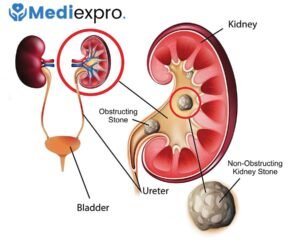Introduction
Definition: A serology test is the study of blood serum to detect the presence of antibodies or antigens. It is essential for diagnosing infections and autoimmune diseases and monitoring immunity.
Importance: It helps diagnose and monitor various diseases (e.g, HIV, Hepatitis, and others).
Types of Serological Reactions
Primary Tests: Direct measurement of antibody or antigen. Examples: ELISA and Radioimmunoassay (RIA).
Secondary Tests: Detect antigen-antibody complexes. Examples: Agglutination, Complement Fixation Tests (CFT).
Tertiary Tests: Assess the biological effects of immune responses. Example: Neutralization tests
Types of Serological Tests
- Agglutination: Detects antibodies that cause clumping of cells or particles.
- Complement fixation: Measures the consumption of complement by antigen-antibody complexes.
- Immunofluorescence: Uses fluorescent dyes to visualize antigen-antibody reactions.
- Precipitation: Detects antibodies that cause precipitation of soluble antigens.
- Neutralization: Measures the ability of antibodies to neutralize the biological activity of a toxin or virus.
- ELISA: Enzyme-linked immunosorbent assay, a highly sensitive and specific test.
ELISA (Enzyme-Linked Immunosorbent Assay)
What is ELISA? ELISA is a highly sensitive and specific immunoassay technique used to detect and quantify antigens or antibodies in a sample.
Types of ELISA: Direct, Indirect, Sandwich, and Competitive ELISA.
Applications:
- Vaccine Development: Monitors immune responses to vaccines.
- Disease Diagnosis: HIV, COVID-19, Hepatitis.
- Allergen Detection: Identifies food allergens like peanuts and eggs.

Other Common Serological Tests
- Western Blot: A confirmation test for infections such as HIV by detecting specific proteins.
- Immunofluorescence: Uses fluorescent antibodies to detect antigens in tissue samples.
- Agglutination Tests: Qualitative and quantitative detection of antibodies or antigens.
Applications in Viral Diagnostics
Viral Infections: Detect specific antiviral antibodies, for example, hepatitis, influenza, and COVID-19.
Autoimmune Disorders: Identify abnormal immune responses against body tissues. Example: Rheumatoid arthritis

Advantages and Limitations
Advantages:
- High sensitivity and specificity.
- Easy and quick to perform.
- Widely available reagents.
Limitations:
- Results depend on antibody availability
- It may show false positives/negatives.
- Kits can be expensive.





